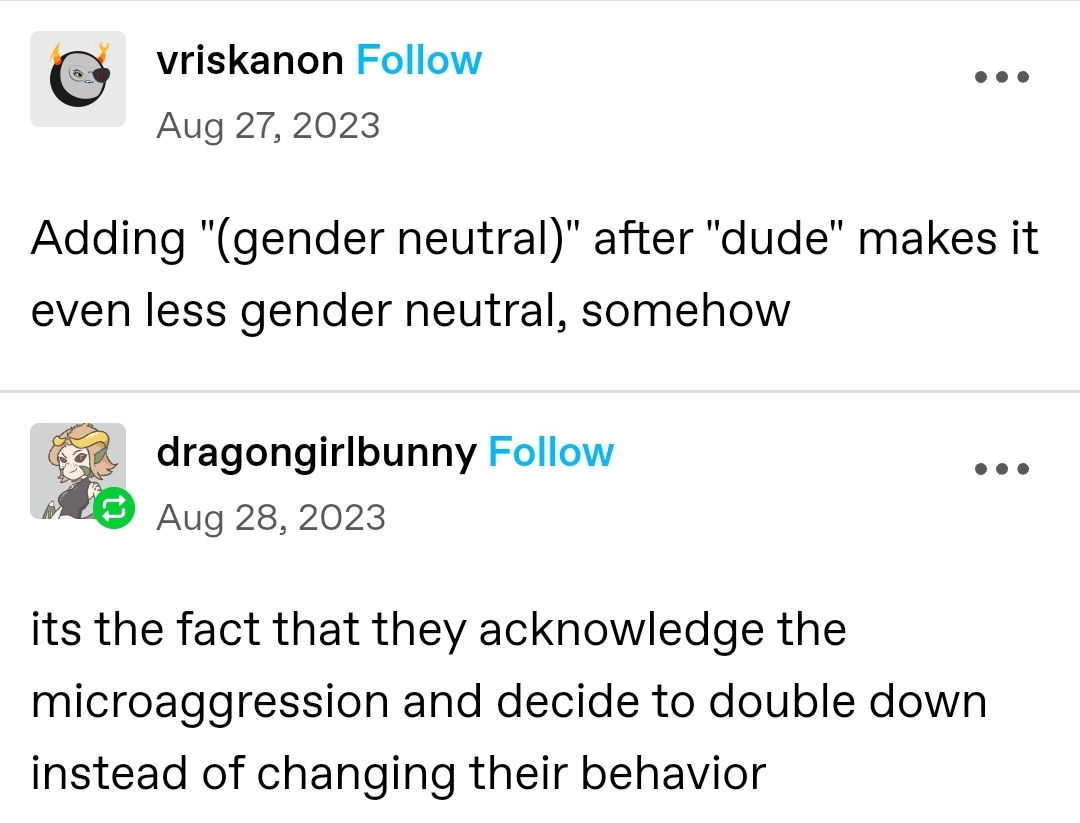traaaaaaaaaaaaaaaaaaaaaaaaaaaaaaaaaaaaaaaaaaaaaaaaaaaannnnnnnnnnnnnnnnnnnnnnnnnnnnnnnnnnnnnnnnnnnns
Welcome to /c/traaaaaaannnnnnnnnns, an anti-capitalist meme community for transgender and gender diverse people.
-
Please follow the Hexbear Code of Conduct
-
Selfies are not permitted for the personal safety of users.
-
No personal identifying information may be posted or commented.
-
Stay on topic (trans/gender stuff).
-
Bring a trans friend!
-
Any image post that gets 200 upvotes with "banner" or "rule 6" in the title becomes the new banner.
-
Posts about dysphoria/trauma/transphobia should be NSFW tagged for community health purposes.
-
When made outside of NSFW tagged posts, comments about dysphoria/traumatic/transphobic material should be spoiler tagged.
If you need your neopronouns added to the list, please contact the site admins.
Remember to report rulebreaking posts, don't assume someone else has already done it!
view the rest of the comments

I don't really have a point but I find it funny that the "dude is gender neutral" debate predates mass awareness of the trans context. It was the first time I had encountered any discourse around misgendering and it was about cis people. I'm drawing a blank on what exactly, but I'm 99% sure I remember it appearing in some pop culture fiction stuff during the 90's too.
Yeah it was a rad fem issue regarding men excluding women implicitly in their language (using guys, dude, etc to refer to large groups). It was less about misgendering and more about acknowledging that you were overlooking/ignoring women in the group.
meanwhile today you'll catch groups of women and no men using guys and dude to address eachother.
Interestingly here in the UK referring to a group as "ladies" regardless of men or women being in the group is actually pretty common.
Like "alroight ladiesss how's everyone doin then?" isn't an uncommon phrase you'd here someone say meeting up with a group in the pub.
it's done here in the states too, usually by a male speaker, when the context is extremely unserious and the audience is presumed to be majority or entirely men.
I wasn't familiar with the rad fem angle, neat.
I'd only personally experienced it in small groups, usually where there were more women than men. There it was definitely more akin to misgendering than the rad fem variant. There was a lot of anxiety about not being "feminine" enough, I think probably because we were teenagers, especially if some women were more likely to get called 'dude' than others in the group. Also a lot of friction about becoming "one of the guys" or getting friendzoned, because again we were horny teenagers.
Horrible time for people presenting in even slightly non-gender conforming ways. I remember when one girl cut her hair short then being relentlessly teased for being a lesbian despite not being one.